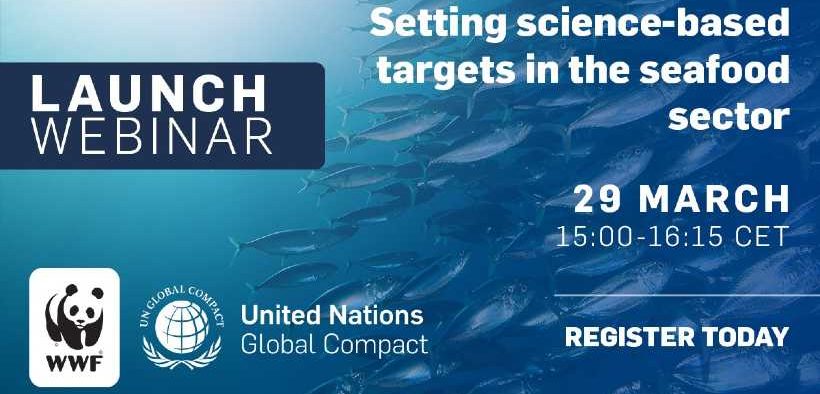Webinar on setting science-based targets in the seafood sector. Join in the conversation on setting science-based targets in the seafood sector.
Date: Tuesday, 29 March 2022
Time: 21:00 - 22:15 (UTC+8)
Click here to register to watch the event online
To limit global warming to 1.5°C, global greenhouse gas emissions must be halved by 2030 and must reach net-zero by 2050. Given the scale and the urgency of the climate crisis, significant climate action across industries and geographies is paramount. Global aquatic food production is integral to the livelihoods of millions and to the nutrition of billions around the world.
Although the seafood industry boasts a lower carbon footprint than most land-based protein production, industry efforts to mitigate the effects of climate change are essential to slow humanity’s approach to critical tipping points. A number of aquatic food companies have already risen to the challenge by setting ambitious emission reduction targets approved by the Science-Based Targets Initiative.
In this upcoming webinar, the UN Global Compact and World Wildlife Fund (WWF) have developed a guide to help aquatic food production companies set meaningful science-based targets (SBTs) in their efforts to combat climate change. This guide was developed to consolidate lessons learned and best practices to date, and to serve as a roadmap for seafood companies to set meaningful science-based targets (SBTs).
The presenters will highlight the path to integrating SBTs in the sector and share their experiences of implementation to date to support companies to meet the High-Level Climate Champions’ target for 20% of fisheries and aquaculture companies to join the UN-led Race to Zero by 2023.
Stay up to date with the latest information by following WorldFish and the hashtag #aquaticfoods to join the virtual dialogue on Twitter.
We look forward to your active participation.
